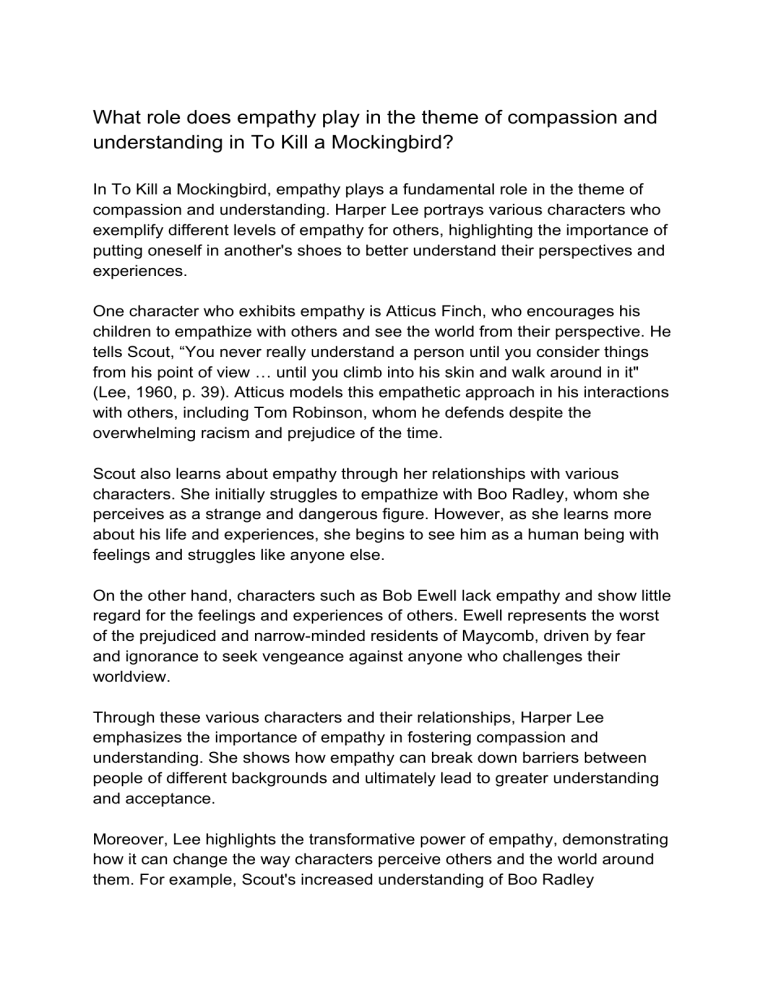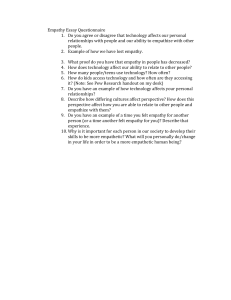What role does empathy play in the theme of compassion and understanding in To Kill a Mockingbird
advertisement

What role does empathy play in the theme of compassion and understanding in To Kill a Mockingbird? In To Kill a Mockingbird, empathy plays a fundamental role in the theme of compassion and understanding. Harper Lee portrays various characters who exemplify different levels of empathy for others, highlighting the importance of putting oneself in another's shoes to better understand their perspectives and experiences. One character who exhibits empathy is Atticus Finch, who encourages his children to empathize with others and see the world from their perspective. He tells Scout, “You never really understand a person until you consider things from his point of view … until you climb into his skin and walk around in it" (Lee, 1960, p. 39). Atticus models this empathetic approach in his interactions with others, including Tom Robinson, whom he defends despite the overwhelming racism and prejudice of the time. Scout also learns about empathy through her relationships with various characters. She initially struggles to empathize with Boo Radley, whom she perceives as a strange and dangerous figure. However, as she learns more about his life and experiences, she begins to see him as a human being with feelings and struggles like anyone else. On the other hand, characters such as Bob Ewell lack empathy and show little regard for the feelings and experiences of others. Ewell represents the worst of the prejudiced and narrow-minded residents of Maycomb, driven by fear and ignorance to seek vengeance against anyone who challenges their worldview. Through these various characters and their relationships, Harper Lee emphasizes the importance of empathy in fostering compassion and understanding. She shows how empathy can break down barriers between people of different backgrounds and ultimately lead to greater understanding and acceptance. Moreover, Lee highlights the transformative power of empathy, demonstrating how it can change the way characters perceive others and the world around them. For example, Scout's increased understanding of Boo Radley transforms her initial fear and mistrust into compassion and a desire to protect him. In conclusion, empathy plays a vital role in the theme of compassion and understanding in To Kill a Mockingbird, as it underscores the importance of seeing the world from others' perspectives and understanding their experiences. Harper Lee's portrayal of characters with varying levels of empathy highlights how empathy can lead to greater compassion and understanding, ultimately breaking down barriers and promoting equality. References: Lee, H. (1960). To Kill a Mockingbird. New York, NY: Grand Central Publishing.




